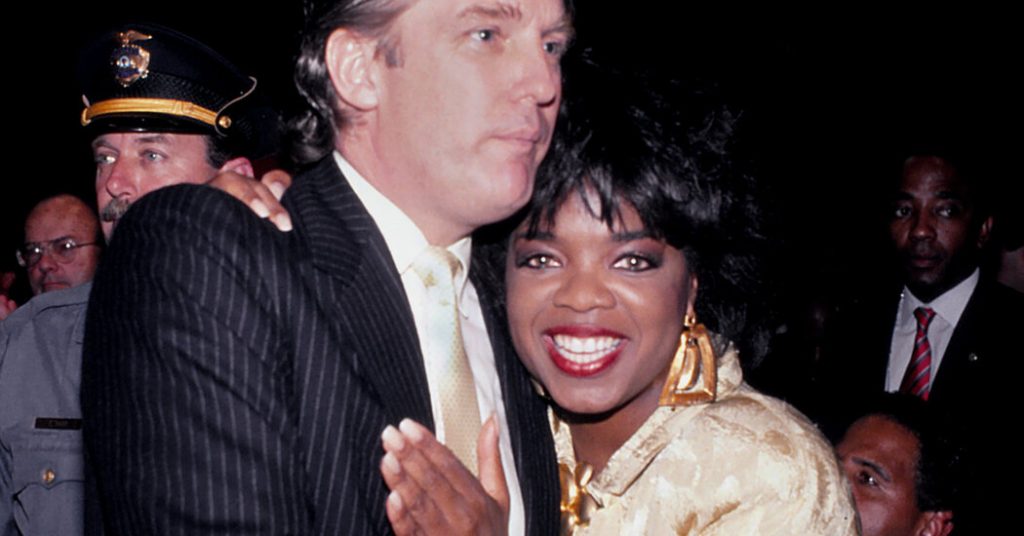Nearly a decade since his first campaign, Mr. Trump continues to benefit from the shield of celebrity that he cultivated long before entering politics. Before becoming a politician, he was known as a successful businessman, entertainer, and tabloid fixture, appearing in movies, television shows, and advertisements alongside other celebrities. The allure of success, fame, and influence has made him a front-runner in the current political landscape, as many Americans view him as wealthy, successful, influential, and entertaining. This aspirational celebrity status confers a halo effect that traditional politicians do not enjoy, making people assume that celebrities must be talented in all areas of their lives.
Celebrities like Oprah Winfrey, Taylor Swift, Martha Stewart, and Donald Trump have cultivated a type of aspirational celebrity that resonates with many Americans, leading to a level of emotional connection between them and their fans that is fundamentally different from that of a politician and voter. These celebrities have their own trials and triumphs play out in public, creating a sense of personal investment among their fans. This emotional connection, known as parasocial relationships, makes fans feel as though they personally know the celebrity they see on screen, influencing their perception of the celebrity’s talents and abilities in all aspects of life.
Following Mr. Trump’s victory in the 2016 Republican primaries and subsequent election to the White House, there was much discussion about the role his celebrity played in shielding him from criticism. Attempts to portray him as a bad businessman often failed because they contradicted his TV persona as a successful mogul, while efforts to depict him as a bully backfired and only reinforced the brand he had already established. This highlights the unique advantage that celebrities like Mr. Trump have over traditional politicians, as their cultivated image can help them weather criticism and negative portrayal more effectively.
Success in various arenas, whether financial, professional, or personal, has its own allure, but for many Americans, fame and influence are the ultimate indicator of achievement. Brands often seek out celebrities as spokespeople to endorse their products, under the assumption that their fame lends credibility to the product. This subconscious association between celebrity and success is a powerful tool that celebrities like Mr. Trump can leverage in their political campaigns, as their status as a celebrity gives them a unique advantage over traditional politicians in garnering public support and loyalty.
The personal trials and tribulations of celebrities are often played out in public, creating a sense of familiarity and connection with fans who develop parasocial relationships with them. This emotional connection can influence the perception of the celebrity’s talents and abilities, making them appear more relatable and trustworthy to their supporters. The unique bond between celebrity and fan is one that traditional politicians do not necessarily enjoy, giving celebrities like Mr. Trump an edge in connecting with voters on a personal and emotional level.
In conclusion, Mr. Trump’s celebrity status has played a significant role in shaping his political career, as the aspirational image he cultivated long before entering politics continues to resonate with many Americans. The emotional connection and bond between celebrity and fan, fueled by public trials and triumphs, create a sense of personal investment in the success of the celebrity, influencing public perception of their talents and abilities. This unique advantage that celebrities hold over traditional politicians highlights the power of fame, influence, and emotional connection in shaping political success in today’s media-driven landscape.


